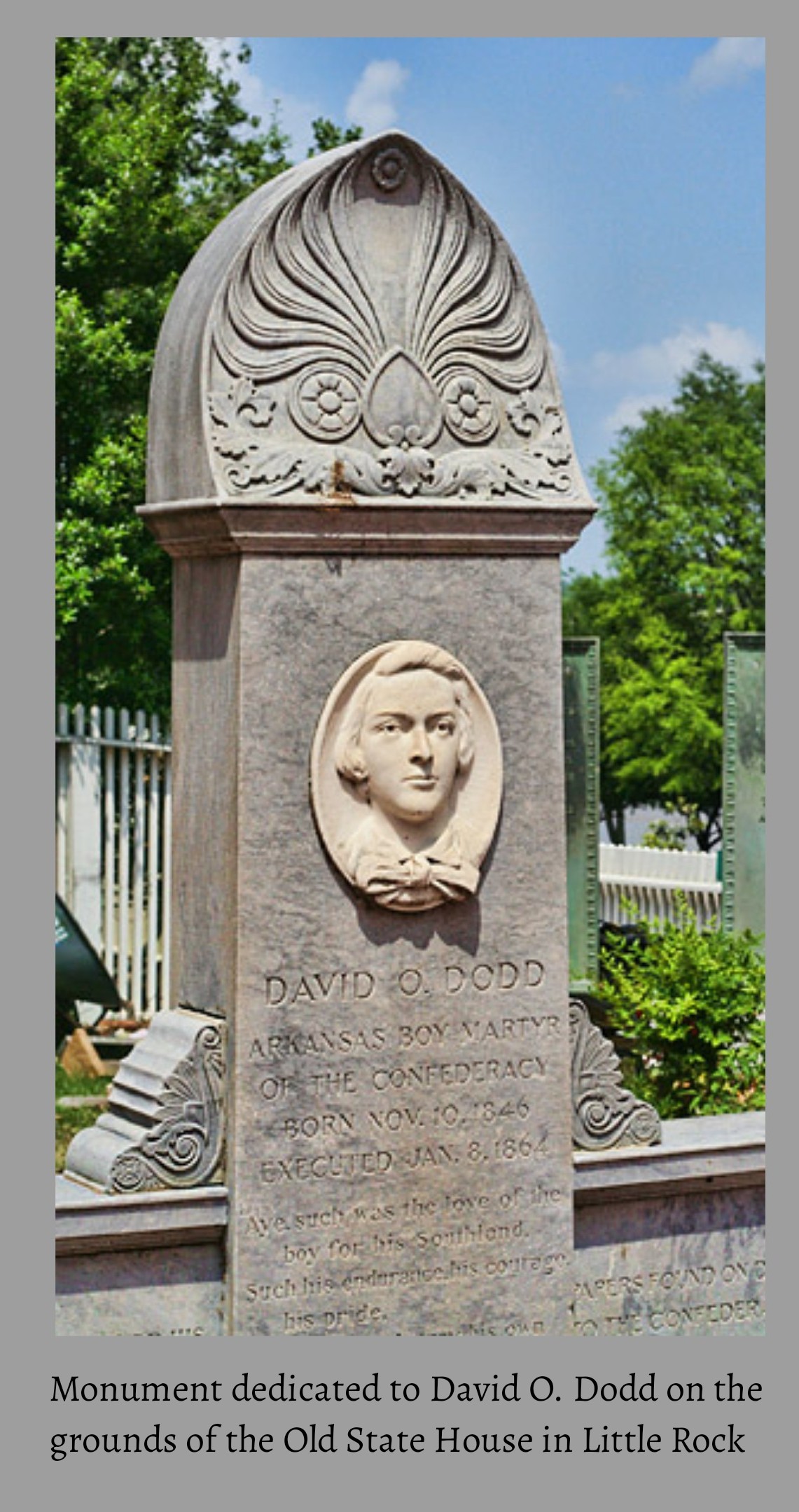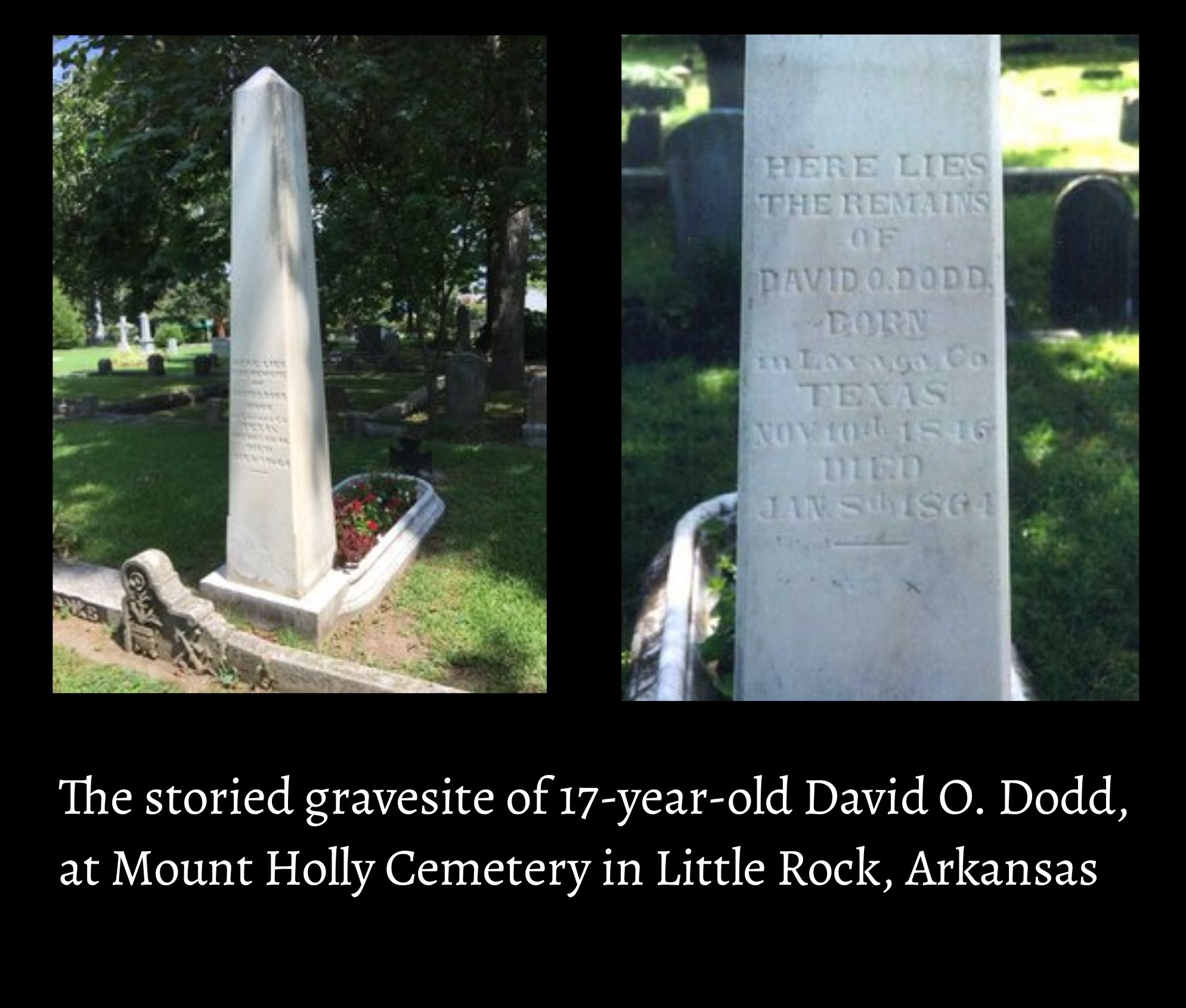


Sunday 18th of May 2025 11:28 PM


Arkansas' Boy Martyr or a Naive Fool?
On January 8, 1864, a grim spectacle unfolded at St. John’s College in Little Rock, Arkansas. Seventeen-year-old David O. Dodd faced a harrowing end, hanging lifeless at the end of a rope—a tragic fate that took nearly five agonizing minutes to conclude. Convicted of espionage against Union forces, Dodd's execution raises questions about his role in a conflict that irrevocably altered American lives.
Born in Port Lavaca, Texas, in November 1846, David’s family relocated to Little Rock, seeking better educational opportunities. He enrolled at St. John’s College but had to pause his studies due to a severe bout of malaria. The unfolding Civil War would soon thrust the Dodd family into turmoil.

In late 1863, Union General Frederick Steele captured Little Rock, prompting the Dodds to seek refuge in Camden, Arkansas. Despite their evacuation, connections in Little Rock remained strong. On Christmas Eve 1863, David returned to the city, ostensibly for his father's business.
At just seventeen, David was below the conscription age, seemingly safe from Union suspicion. Armed with his birth certificate and a pass from Confederate General James F. Fagan, he thought he had nothing to fear. However, the nature of his mission—and the true intentions behind it—remain shrouded in ambiguity.
A Murky Journey
David’s trip was not without incident. General Fagan's casual remark about expecting a report upon Dodd's return hints at expectations beyond mere business. The young man indulged in holiday festivities before attempting to navigate his way back home. In a fateful twist, he inadvertently re-entered Union territory without the necessary identification, leading to his capture.

During his detention, Union soldiers discovered a small leather notebook containing Morse code, detailing the strength of Union forces in the area. This discovery led to Dodd’s arrest and subsequent transfer to the Ten Mile House, a site steeped in its own history, once serving as a Union military outpost.
A Brave but Foolhardy Stance
Dodd was soon tried at the arsenal in downtown Little Rock, where he faced grave accusations of spying. Union General Steele offered him clemency in exchange for the names of his contacts. Dodd’s alleged response—“I can give my life for my country but I cannot betray a friend”—though noble, ultimately sealed his fate. On a bitterly cold January day, as the Arkansas River froze, David O. Dodd was executed for his alleged crimes.

To some, David remains a symbol of heroism, known as “The Boy Martyr of the Confederacy.” Others view his death as a tragic consequence of youthful naivety, a boy embroiled in a perilous game he scarcely understood. For Union authorities, however, the evidence suggested a deliberate act of espionage, and Dodd received the fate reserved for spies.
Legacy and Reflection
Today, David Dodd rests in Mount Holly Cemetery in Little Rock, close to General Fagan’s grave. Each year, he is commemorated by the Sons of Confederate Veterans, ensuring his story persists in local folklore. Yet, the tale of David O. Dodd invites deeper contemplation.

Was his youthful impetuosity a mitigating factor? Did he act independently, or was he a pawn in a larger Confederate scheme? Should he be celebrated as a martyr, or is he a cautionary tale of the costs of war?
These questions resonate within the community, prompting reflection on the complexities of loyalty, sacrifice, and the harsh realities of a divided nation. Share your thoughts on David O. Dodd's legacy and the moral dilemmas it presents.
Tag: David O Dodd Boy Martyr of the Confederacy, the Shakespearean Tragedy of David O Dodd, Mount Holly Cemetery in Little Rock, Pulaski County, Arkansas, Arkansas historical sites, tourist attractions